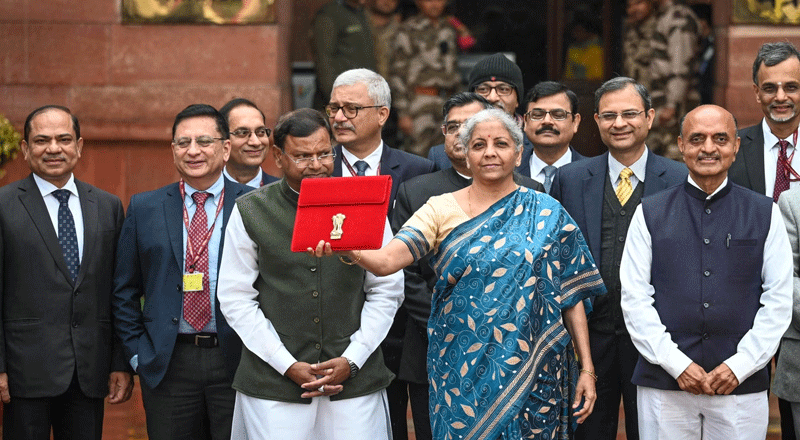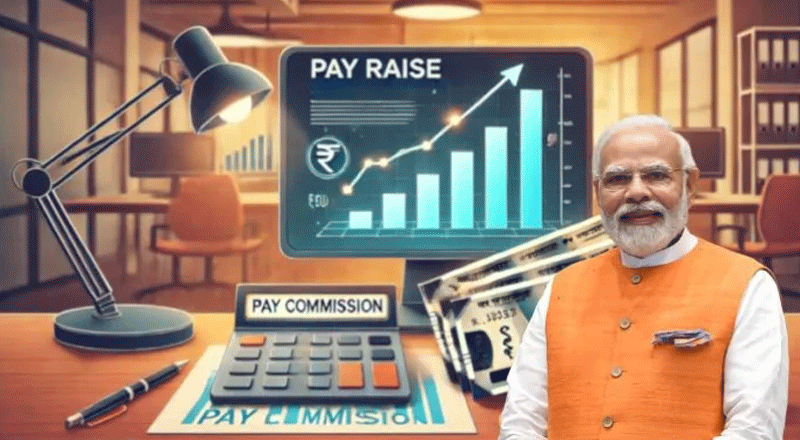In a turbulent start to the week, Indian markets witnessed a significant decline, with the Sensex dropping over 1,400 points, marking one of its sharpest falls in recent months. The Nifty50, along with other broader indices, plummeted as persistent selling by foreign investors and a mix of global factors drove the downturn. Amid the shock, the rupee further weakened, reaching a record low against the U.S. dollar. With over Rs 8 lakh crore wiped from market capitalization, investor concerns are at an all-time high as they grapple with multiple economic challenges.
Market Mayhem: Sensex and Nifty Plunge
The Bombay Stock Exchange (BSE) Sensex suffered a steep drop of 1,433 points, falling to 78,290. The Nifty50 mirrored this trend, shedding 458 points to settle near 23,845, reaching a nearly three-month low. Major sectors and indices, including Nifty Bank, Auto, IT, Pharma, and Consumer Durables, saw declines ranging from 0.5% to 1.7%. Key players in the market drop included Reliance Industries, Infosys, ICICI Bank, and HDFC Bank, together contributing to a 420-point loss on the Sensex. The increased volatility also led the India VIX, a fear gauge, to surge by 5.2%, indicating heightened investor anxiety.
Factors Behind the Market Drop
Uncertainty Around the U.S. Presidential Election
One of the primary contributors to market instability is the uncertainty surrounding the upcoming U.S. presidential election, scheduled for November 5. Democratic Vice President Kamala Harris and former President Donald Trump are engaged in a tight race, sparking concerns about potential shifts in U.S. economic policy. Analysts suggest that a Harris victory could bring a more accommodative stance from the Federal Reserve, potentially influencing India’s own interest rate policies in a way that might favour non-banking financial companies (NBFCs). Conversely, a Trump win could signal higher interest rates in the U.S., maintaining a more restrictive environment for India and potentially benefiting public sector banks (PSBs).
experts commented on the election’s impact, noting, “Global markets will remain focused on the U.S. elections, which could create short-term volatility. However, economic fundamentals like growth, inflation, and Fed policy will continue to drive the market over the long term.”
Fed Rate Decisions: Further Caution Expected
The U.S. Federal Reserve’s upcoming policy meeting on November 7 is another significant factor influencing Indian markets. Speculation about a possible rate cut has led to apprehension among investors. If the Fed cuts rates, it could lead to increased foreign investment inflows into India. However, without clarity on the Fed’s stance, investors are likely to remain cautious, further exacerbating the current downturn in the stock market.
Disappointing Q2 Earnings Report
A major hit to investor sentiment has come from underwhelming Q2 earnings reports from major Indian corporations, with slowing earnings growth adding to the challenges. Analysts are concerned that weak earnings will continue to deter foreign institutional investors (FIIs) from investing in Indian equities. Experts warned, “The market is facing headwinds due to a deceleration in earnings growth, which may push Nifty EPS growth below 10% in FY25. This earnings environment makes it challenging to sustain current market valuations, likely keeping FII activity subdued.”
Rising Oil Prices Exacerbate Inflation Fears
Oil prices surged on Monday, further compounding investor worries. Following OPEC+’s announcement to delay a planned output increase, Brent crude rose by $1.18 per barrel to $74.28, while U.S. West Texas Intermediate crude gained $1.20 per barrel, reaching $70.69. The increase in oil prices pressures India’s inflation outlook, as the country is a major importer of crude. This increase in costs could reduce the Reserve Bank of India’s (RBI) flexibility in adjusting interest rates, thereby impacting overall economic growth.
Broader Economic Implications of the Market Drop
The market downturn has far-reaching implications, especially for retail investors and businesses that depend on robust stock performance. With the rupee also hitting a record low against the U.S. dollar, imports could become more expensive, adding pressure on businesses that rely on international trade. The cumulative effect of a weakened rupee, disappointing earnings, and high oil prices poses a serious threat to India’s economic stability, leading to potential revisions in growth forecasts and future investment strategies.
In conclusion, the sharp decline in Sensex and Nifty, coupled with the rupee’s record low against the dollar, underscores the need for caution and resilience among investors. As India navigates global economic uncertainties, including the U.S. election and upcoming Fed rate decisions, markets are likely to remain volatile in the near term. Yet, as experts suggested, while short-term volatility may persist, long-term fundamentals are expected to stabilize once the global economic environment becomes clearer. For now, both institutional and retail investors may need to brace for continued fluctuations, staying focused on risk management and careful monitoring of key economic indicators in the weeks ahead.
(With inputs from agencies)





